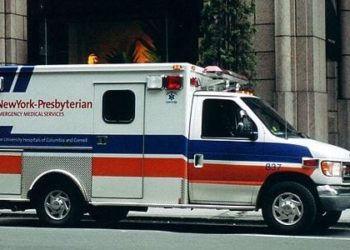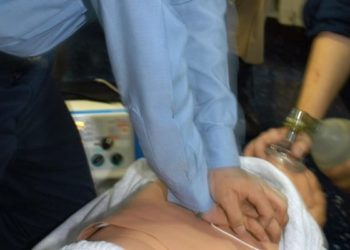Adapted training program improves retention of Basic Life Support skills in young children
1. Children aged 5-8 years who learned Basic Life Support (BLS) using educational toys were more successful at carrying out the chain of survival one month later when compared to children who learned using a standard adult manikin.
2. All children improved in their ability to initiate the chain of survival, regardless of educational material used.
Evidence Rating Level: 1 (Excellent)
Study Rundown: While young children are limited by their body weight in their ability to perform quality CPR, they are still able to learn how to recognize a cardiac arrest and to call for appropriate help. Training children to do so has the potential to result in quicker recognition and treatment of cardiac arrest. This randomized control trial assessed whether using BLS learning materials adapted specifically for children (such as story books, puzzles, and cuddly toys) would improve comprehension and retention of the BLS chain of survival. The use of these adapted tools improved retention of BLS material at one month post-training, indicating the utility of having separate teaching methods in BLS courses for children. As many children were able to learn and retain the BLS chain of survival regardless of learning material, this study also shows that BLS skills can be successfully taught to children as young as 5 years old. This study, while well-designed, is limited in its generalizability given its restriction to a specific community in Spain. It is also unable to comment on retention rates at periods greater than 1 month.
Click to read the study in PEDIATRICS
Relevant Reading: Teaching children basic life support skills
In-Depth [randomized controlled trial]: This randomized control trial from Pontevedra (Spain) aimed to determine if the use of learning materials specific to young childrens’ psychoevolutionary development would improve their ability to learn the first steps in the BLS chain of survival (keeping calm, checking the victim’s response, calling emergency services, and communicating with dispatch). The trial included 236 children aged 5-8. Children with physical or mental handicaps, as well as children with previous BLS training were excluded. Children were randomly assigned to one of four groups in which different BLS learning materials were used, and were tested prior to training, one week after training, and one month after training. In the first learning group, a puzzle cube with validated BLS iconography, called the Rescube, was used, and a cuddly toy was used during simulation of a BLS scenario. The second learning group used a flipbook, called the Endless book, and a cuddly toy was again used in simulation. The third and fourth groups had no additional learning material and performed simulations on a cuddly toy or a standard BLS manikin, respectively. While children in all groups improved in their ability to initiate the BLS chain of survival (P<0.05 in all comparisons), children in the groups with learning materials adapted specifically to their level had higher success rates 1 month after their teaching session. 75% of children in the Rescube group, and 53% of children in the Endless book group were successful at 1 month, compared to 42% of children in the cuddly toy only group and 13% in the manikin group.
Image: PD
©2021 2 Minute Medicine, Inc. All rights reserved. No works may be reproduced without expressed written consent from 2 Minute Medicine, Inc. Inquire about licensing here. No article should be construed as medical advice and is not intended as such by the authors or by 2 Minute Medicine, Inc.







